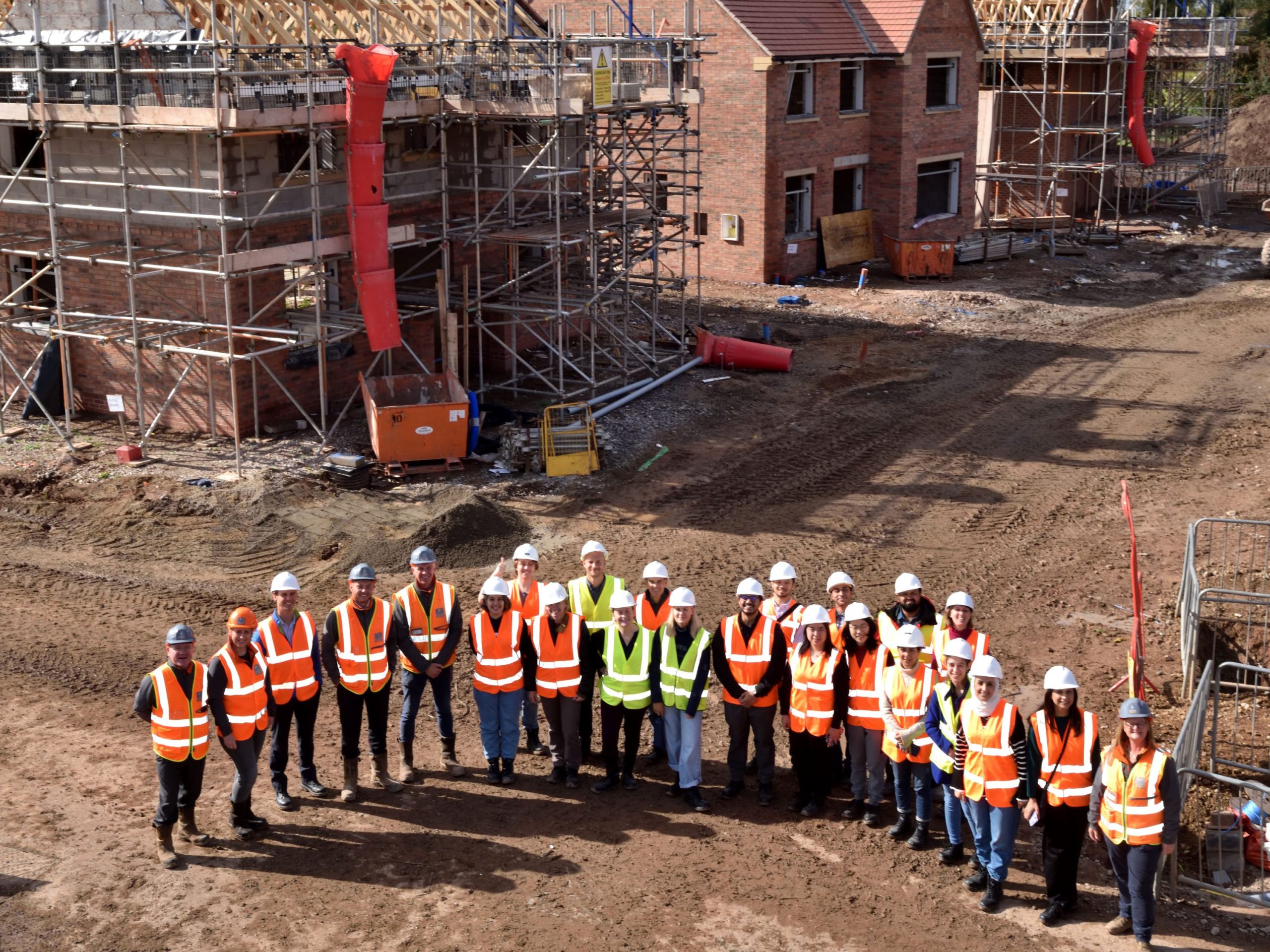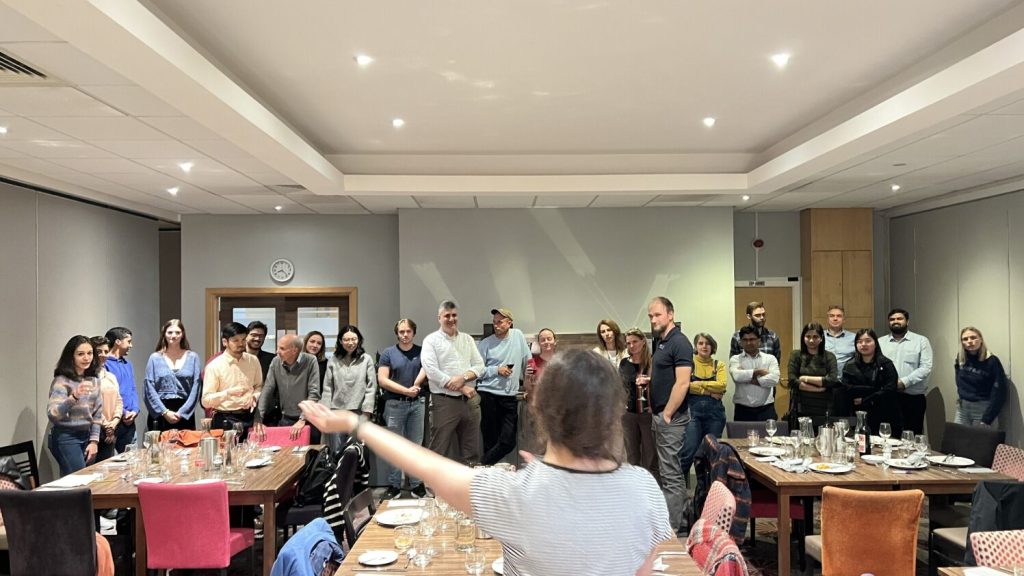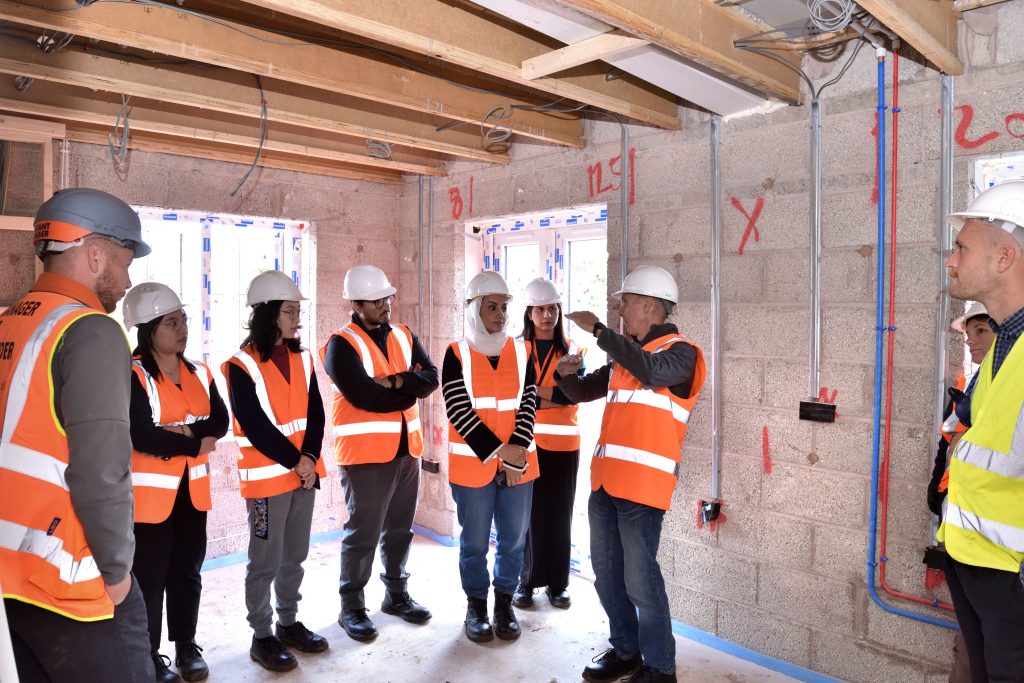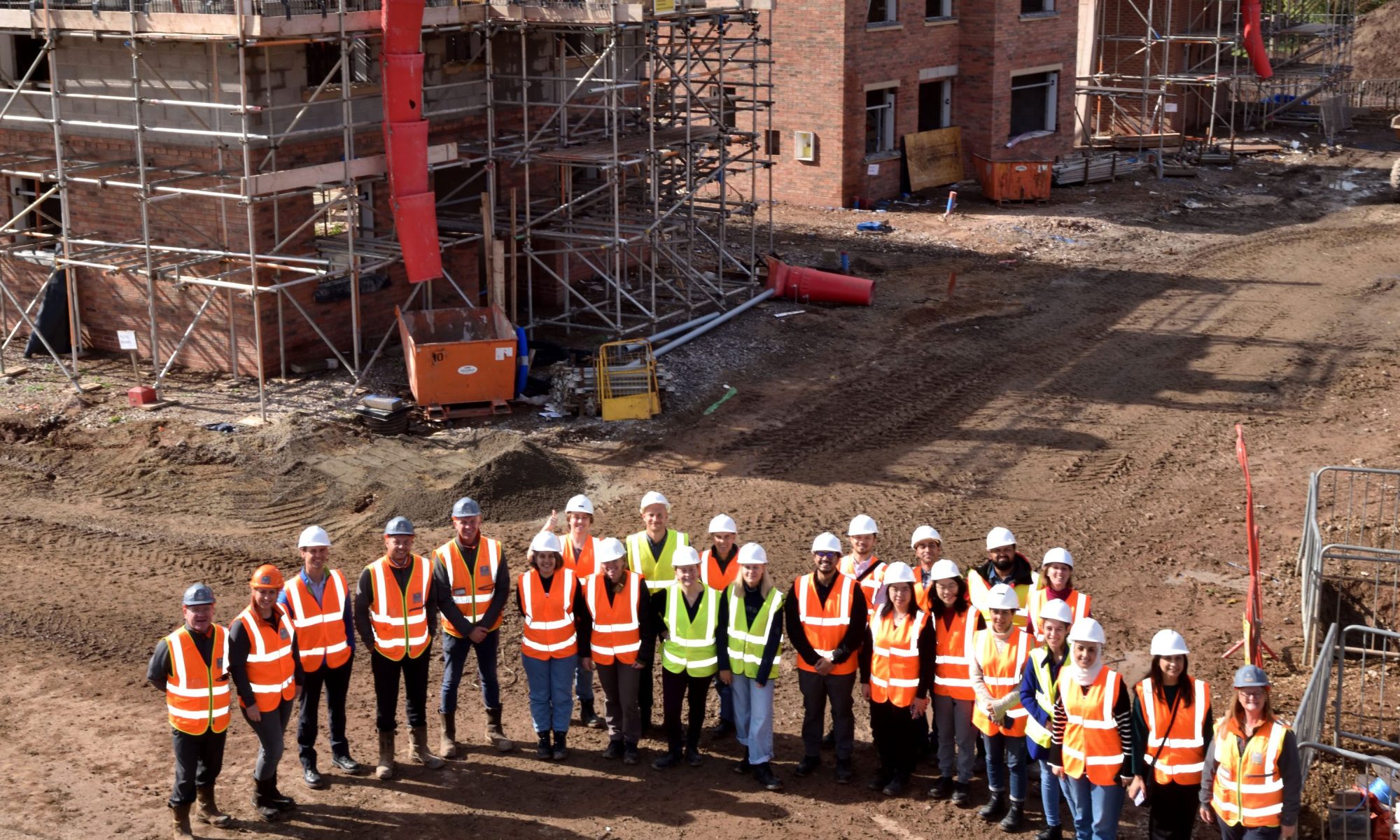
At the end of September, we welcomed our new cohort of ERBE CDT students to Loughborough, to commence their PhD journey with a weeklong residential course in Energy Resilience and the Global Built Environment. In addition to setting the scene for the training they will undertake during their time with the CDT, this immersive “block week” brought members of the new intake—comprising students based at Loughborough, UCL, the University of Galway, and University College Cork—together in person for the first time, providing the opportunity to get to know those whom they will be journeying alongside over the coming years, as well as the ERBE academics and staff.
The program for the week sought to introduce the breadth of the energy resilience challenge, with taught sessions covering the history of climate change, energy and innovation; energy demand in both domestic and non-domestic contexts; security and resilience in net zero systems; and the sociotechnical interface between energy demand and human behaviour. Further sessions provided insight into ongoing energy resilience research projects at each of the ERBE partner institutes.
Students also worked together in groups throughout the week to tackle a coursework challenge: to develop an energy systems pathway for the UK’s transition to net-zero by 2050 using the MacKay Carbon Calculator tool, and to present their pathway to an assessment panel of ERBE academics at the end of the week. This required groups to come together and agree on a high-level strategy for the transformation of the UK energy system, before translating that strategy into actions which would result in hitting the net-zero goal. This was no mean feat—with groups working together for the first time, and with many participants having little prior knowledge of the UK context—but the students faced the challenge with aplomb, leaving the assessment panel suitably impressed with what they achieved in the limited time available.
Classroom-based activities were complemented by a tour of the Sir Frank Gibb Laboratory building, where students were shown experimental equipment that used in energy resilience research, and a residential construction site visit facilitated by William Davis Homes. In one of the highlights of the week, students were able to see houses in all stages of construction—from excavation and foundations, all the way through to completion—providing invaluable insight into the practical realities of UK housebuilding.
Although packed with activities during the day, the week also allowed for relaxation and nourishment, with accommodation provided at the on-campus Burleigh Court Hotel. (What better way to energise for a day ahead than a dip in the pool and a catered breakfast?) A lively welcome event on the first night—expertly hosted by current Loughborough ERBE doctoral researchers—served as an excellent ice breaker, featuring an energy quiz, a buffet meal, and well-received a game of ‘philosophical chairs’ (which engendered just the right amount of friendly controversy!)

This year marks the fifth and final intake for the ERBE CDT, and the fifteenth overall when including the LoLo CDT for Energy Demand Studies, from which ERBE followed. The block week has been hosted by Loughborough since 2010, and has played a crucial role in initiating the PhD studies of well over 100 students. Delivery of each block week has been made possible through the support of a wide range contributors, to whom our deep thanks are due: William Davis Homes and the Imago facilities management team, for facilitating invaluable site visits; University catering services and Burleigh Court Hotel, for keeping staff and attendees alike well-fed and well-rested; Loughborough, MaREI and UCL academics and staff, for their tireless efforts developing and delivering an engaging and stimulating programme that has stayed relevant year after year; and of course our students, for their contributions during their own block weeks, and in supporting delivery in subsequent years.


